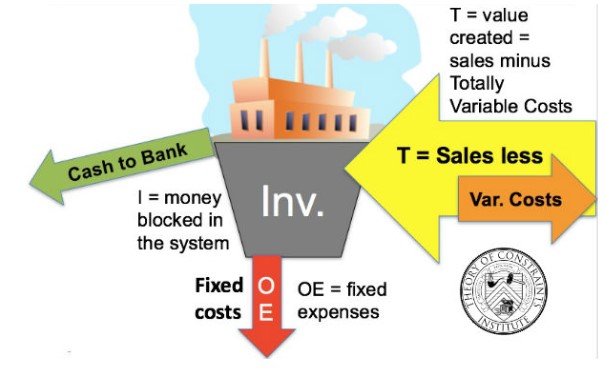Productivity Improvement
What is Productivity?
Productivity is a measure of how efficiently a person completes a task. We can characterize it as the rate at which an organization or nation produces labor and products (yield), typically passed judgment on in light of the measures of resources (work, capital, energy, or different assets) used to convey that labor and products.
Why is productivity important?
Increased productivity indicates greater output from the same amount of input. It means higher efficiency with which a company or economy can transform resources into goods. Thus, productivity growth is our opportunity to create more from less.
Increased productivity drives economic growth, meaning an economy can produce and consume more and more goods and services for the same amount of work. Every section of society, viz., consumers, workers, and employers, can benefit from a productivity increase. It is vital to individuals, businesses, and analysts.
Looking at the benefits derived from increased productivity in the workplace
- Effective utilization of resources
- Production costs have been reduced.
- Reduced prices of goods and services
- Increased wages for workers
- lower overhead costs.
- Higher profits for businesses
- High per capita income
- Overall, prosperity and growth
How to improve productivity?
According to Eliyahu Goldratt, in his book “The Goal,” he states that to become more productive, you must first know your goal and measure whether an organization is leading towards the goal or being productive day by day or not, given the three measures to track it.
3 key measures given by him are Throughput, Inventory and Operational expense. Where he characterizes each of them as,
- Throughput: the rate at which the system generates money through sales net of variable costs. This corresponds to the value added by the system.
- Inventory: “all the money that system has invested in purchasing things which it intends to sell,” This was later expanded to include all investment such as plant, property, equipment etc.
- Operating Expense: “all the money the system spends in order to turn inventory into throughput.” These fixed costs like rent and salaries are incurred whether or not throughput increases or decreases costs. This corresponds to the value added by the system.

These 3 measures jointly account for how money flows in, out, or gets stuck in a manufacturing system. The goal is to concurrently increase throughput and reduce inventory and operating expenses.
Factors influencing productivity
The factors that influence productivity can be classified broadly into two categories:
(A) Controllable Factors.
(B) Uncontrollable Factor.
(A) Controllable Factors:
Controllable Factors are considered as internal factors. These are the factors which are in control of industrial organization. They are as follows,
1 Material and Power:
Improved quality of raw materials and increased use of power have a favorable effect on productivity. An effort to reduce materials and energy consumption brings about considerable improvement in productivity.
It consist:
- Selection of quality material and right material.
- Control of wastage and scrap.
- Effective stock control.
- Development of sources of supply.
- Optimum energy utilization and energy savings.
2. Machinery and Plant Layout
The size of the plant and the capacity utilization has direct bearing on productivity. Production below or above the optimum level will be uneconomical and will tend towards a lower level of productivity. The arrangement of machines and position in the plant and the setup of the work-bench of an individual worker will determine how economically and efficiently production will be ferried out.
3. Human Factors:
Human nature and human behavior are the most significant determinants of productivity. Human factors include both their ability as well as their willingness.
4. Ability to Work:
Ability to work is governed by education, training, experience and aptitude of the employees. Productivity of an organization depends upon the competence and caliber of its people (both workers and managers).
5. Willingness to Work:
Motivation and morale of people are very important factors that determine productivity. These are affected by wage incentive schemes, labor participation in management, communication systems, informal group relations, promotion policy, union Management relations, quality of leadership, working hours, sanitation, ventilation, subsidized canteen and company transport etc.
6. Organization and Managerial Factors:
Organization factors include various steps taken by the organization towards maintaining better industrial relations such as delegation and decentralization of authority. These factors also influence motivation likewise the existence of group, with higher productivity as their goal is likely to contribute to the organization objectives.
The competence and attitudes of managers have an important bearing on productivity. Competent and dedicated managers can obtain extraordinary results from ordinary people. Job performance of employees depends on their ability and willingness to work.
7. Technological Factors:
Technological factors exert significant influence on the level of productivity.
These include the following:
- Size and capacity of plant
- Product design and standardization
- Production planning and control
- Plant layout and location
- Materials handling system
- Inspection and quality control
- Machinery and equipment used
- Research and development
(B) Uncontrollable Factors:
Uncontrollable factors are known as external factors and these factors are beyond the control of the individual industrial organization. They are as follows
1 Economic Political and Social Changes:
There are economic, social and political factors that affect productivity.
- Economic Factors like Size of the market, banking and credit facilities, transport and communication systems, etc. are important factors influencing productivity.
- Political Factors like Law and order, stability of government, harmony between states etc. are essential for high productivity in industries. Taxation policies of the government influence willingness to work, capital formation, modernization and expansion of plants etc. Industrial policy affects the size, and capacity of plants. Elimination of sick and inefficient units also helps to improve productivity.
- Social Factors like Social customs, traditions and institutions influence attitudes towards work and job. For instance, bias on the basis of caste, religion, etc., inhibited the growth of modern industry in some countries. The joint family system affected incentives to work hard in India. Close ties with land and native places hampered stability and discipline among industrial labor.
2. Natural Resources
Natural factors such as physical, geographical and climate conditions exert considerable influence on productivity, particularly in extreme climates (too cold or too hot) tends to be comparatively low. Natural resources like water, fuel and minerals influence productivity.
3. Government Factor:
According to Eliyahu Goldratt, in his book “The Goal,” he states that to become more productive, you must first know your goal and measure whether an organization is leading towards the goal or being productive day by day or not, given the three measures to track it.t.
“Every action that brings a company closer to its goal is productive. Every action that does not bring a company closer to its goal is not productive.” ~ Eliyahu Goldratt
References
https://www.simplilearn.com/what-is-productivity-and-how-to-define-and-measure-it-article
https://www.tocinstitute.org/the-goal-summary.html
https://readingraphics.com/book-summary-the-goal-a-process-of-ongoing-improvement/
https://www.economicsdiscussion.net/management/productivity-meaning-concept-formulas
Image source : https://www.tocinstitute.org/the-goal-summary.html
Article by:- Ritik Darji

